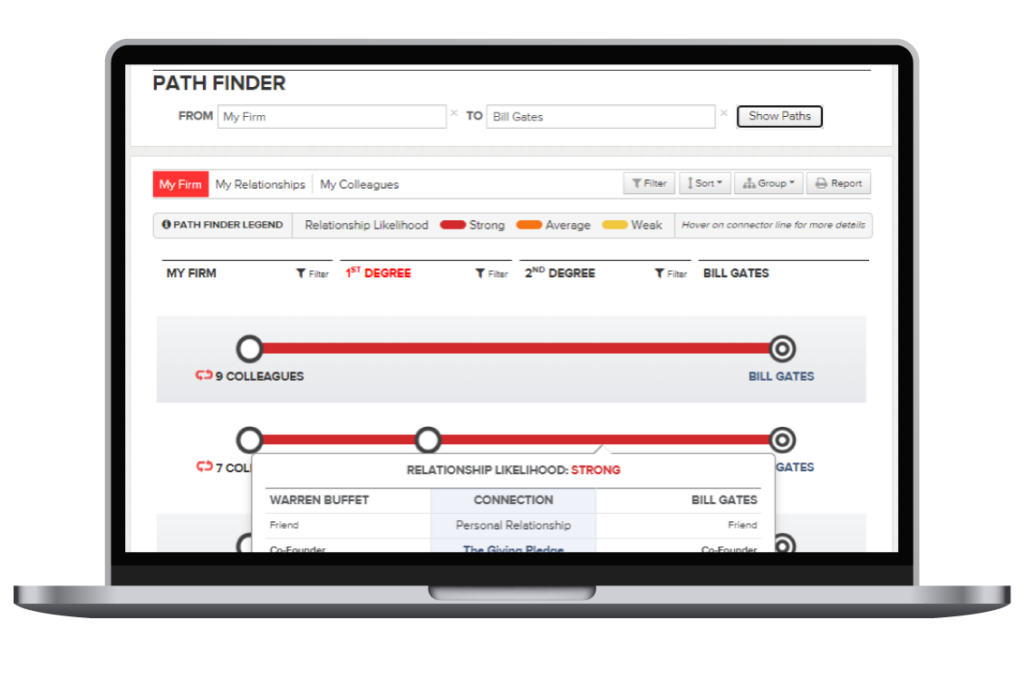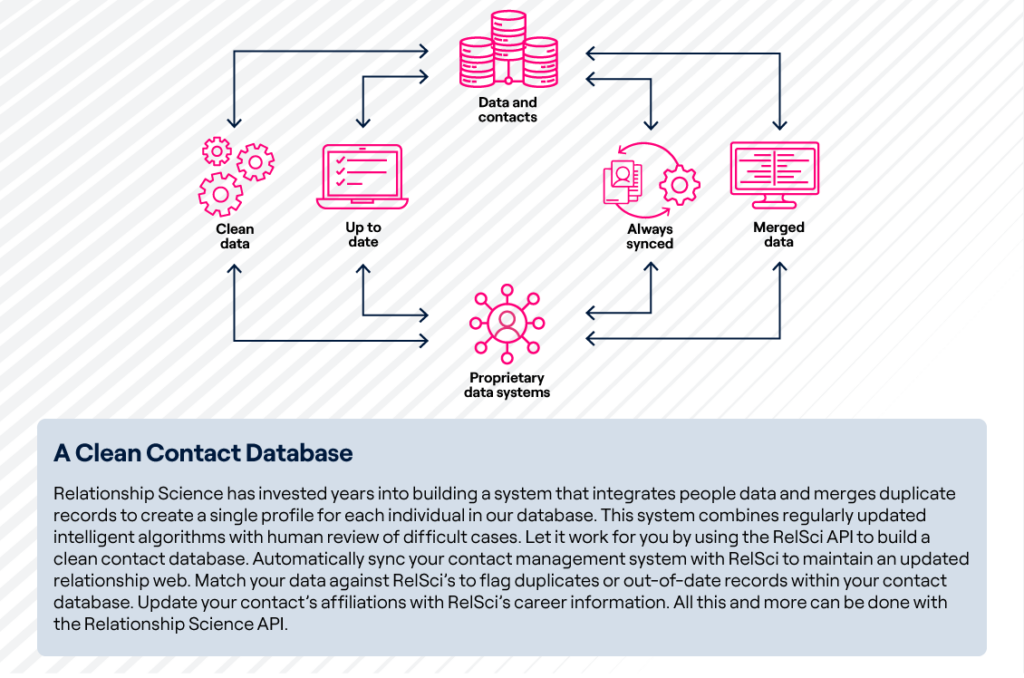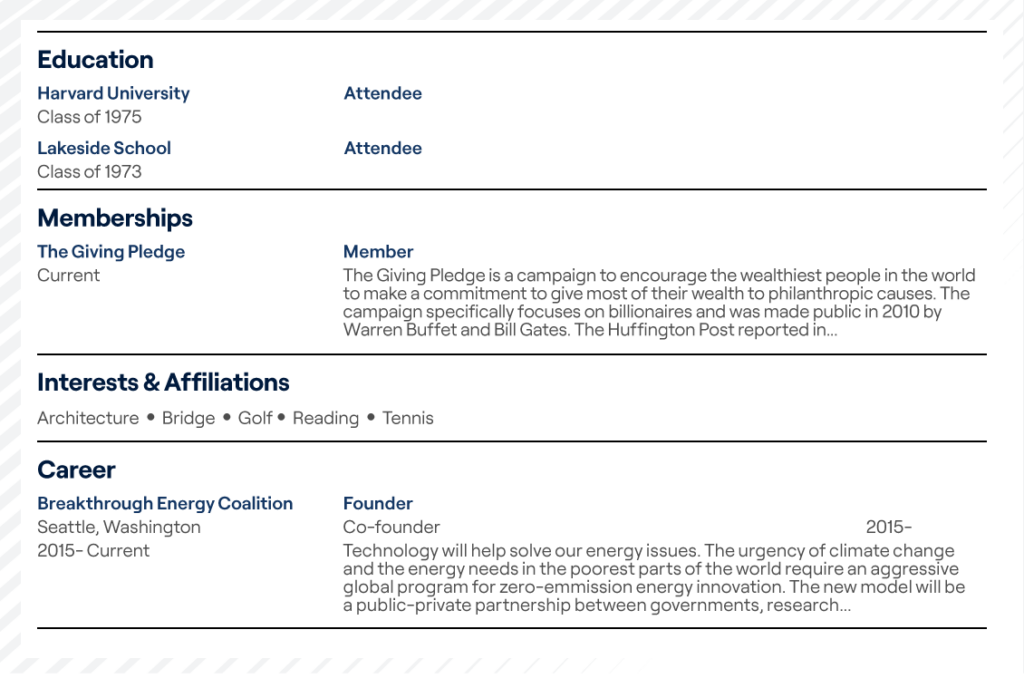Using Customer Relationship Management (CRM) platforms have become the structural backbone for most organizations globally. Companies, businesses, and non-profits use CRMs to track business relationships, manage lead funnels, compile client and competitor data, and a whole lot more. Utilizing these platforms well is one of the ways that successful organizations differentiate themselves across their industry. Ultimately, your business relationship management relies on your CRM, and RelSci can help you optimize it.
The Best Ways to Use a CRM:
Your CRM provides a centralized location for all relevant data on prospects and customers. It gives teams access to the data they need to target prospects, manage and nurture leads, close deals, manage accounts, secure renewals, and more. Some of the most common CRMs used globally include Salesforce, Microsoft Dynamics, Oracle CRM, SAP CRM, and Hubspot, although certain industries often lean into specific ones.
Let’s take a look at some of the scenarios in which a CRM is used and how relationship management and intelligence play a role in organizational success. Remember, at its core, a CRM is a tool designed to help you manage relationships (with customers, clients, or anyone else).
As Sales Cycle Savants
Tracking and managing client interactions is a lot, especially at scale. CRMs are particularly well-designed to manage sales cycles. Get an inbound demo request from a potential prospect? Add them to the CRM. Have a productive call with a potential executive sponsor? Note it down in the CRM. These platforms enable firms to track account developments all in one place so that they don’t lose any data that could help them close the deal. Many CRMs have customizable “processes” that make moving a prospect through the cycle as easy as “drag & drop” from one step to the next.
For Much Needed R&R (Renewal and Retention)
Outside of direct sales interactions, CRMs are still endlessly useful. Account management teams can track usage, communication, and renewal information in a CRM system. Many platforms offer add-ons, like Gainsight, that focus on customer success and retention. These supplemental tools often incorporate regular touchpoints with clients to ensure that they are satisfied customers. It’s almost always cheaper to retain a customer than to find a new one.
To Perfect Pipeline Analysis
Many CRMs offer sophisticated reporting that helps organizations understand their pipelines and improve their sales strategies. Organizations use CRM technology to discover which lead sources convert most often, help with pipeline analysis and sales forecasting, and more. Optimization helps you see where a pipeline may be “leaking”.
Implementing CRM Strategies, Made Easy
More and more organizations have recognized that CRMs are an essential tool for running a modern business, yet many struggle to maximize the value of their CRM solution. RelSci’s technology can help fill several gaps that prevent organizations from fully leveraging their current CRM solutions and maximizing their relationship intelligence.
RelSci supercharges your CRM by:
Identifying Warm Prospect Introductions
Organizations that need CRMs are often large and complex. As a result, they have a lot of hidden relationship capital – a valuable and often under-utilized asset. Integrating RelSci data into a CRM solution enables organizations to understand how they connect to a lead or prospect. RelSci identifies the relevant colleagues who can make these introductions and surfaces this information directly within an organization’s CRM.

Cleaning Up Contact Lists
A CRM system is only as good as the data an organization puts into it. When firms rely solely on their internal data to populate their CRMs, they become full of out-of-date and duplicate contacts as prospects move jobs. Regularly updating CRM data is a significant resource investment that few firms are willing or able to make.
RelSci’s sophisticated tracking of executive changes and board member moves makes it easy to follow prospects as they change roles. A custom API solution enables organizations to flag or update prospect records whenever RelSci shows a new role change.

Arming You With Intelligence
A typical CRM contact profile includes the basic biographical information that internal teams compile, such as contact information, current title and role, or recent interactions. Organizations can supplement these CRM profiles with RelSci data to get a deeper understanding of their accounts and contacts. RelSci data can illuminate:
- Where a prospect went to school, where they used to work, and what boards they sit on
- What charitable causes a prospect supports
- When a prospect recently changed jobs, joined a new board, or sold stock
- When a prospect was recently mentioned in the news

Giving Ideal Timing Windows
CRM systems are often filled with hundreds or thousands of potential prospects, far more than a sales team can manage at a single time. RelSci’s CRM solutions include targeted News and Alerts that keep teams updated on developments at their prospects. These alerts provide a ready excuse to reach out and re-engage with a prospect at exactly the right time.
How to Get Started with RelSci
RelSci offers options for organizations that use a CRM, as well as those who don’t.
Off the shelf, RelSci offers plugins for Salesforce and Microsoft Dynamics. For other CRMs, the RelSci API is a great alternative for teams looking to customize their CRM integration.
For organizations without a CRM, RelSci’s platform is fully functional online through relsci.com. Simply upload contacts and any other proprietary data to get started.
Want to learn more? Request a demo today to see how you can supercharge your CRM and unlock relationship intelligence.
Monika Bergander is a Senior Account Executive at Altrata. She joined Relationship Science during the product launch in 2013 and has worked with clients across multiple industries such as professional services, corporate, NPO, and private equity. Monika has over 15 years of experience in business development and sales, and specializes in relationship mapping and executive connectivity. Prior to joining Relationship Science, Monika worked at S&P Capital IQ working across the financial services space. Monika holds a Bachelor of Science in Finance from the University of Connecticut.
